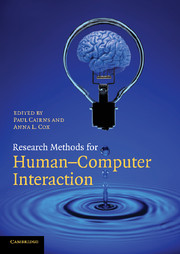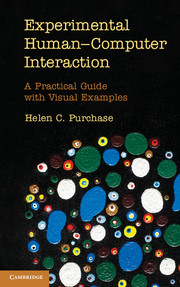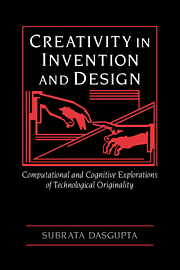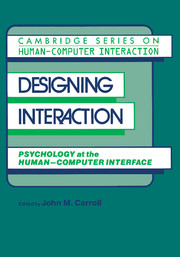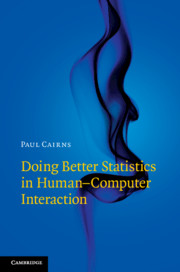Research Methods for Human-Computer Interaction
Human-Computer Interaction draws on the fields of computer science, psychology, cognitive science, and organisational and social sciences in order to understand how people use and experience interactive technology. Until now, researchers have been forced to return to the individual subjects to learn about research methods and how to adapt them to the particular challenges of HCI. This book provides a single resource through which a range of commonly used research methods in HCI are introduced. Chapters are authored by internationally leading HCI researchers who use examples from their own work to illustrate how the methods apply in an HCI context. Each chapter also contains key references to help researchers find out more about each method as it has been used in HCI. Topics covered include experimental design, use of eyetracking, qualitative research methods, cognitive modelling, how to develop new methodologies and writing up your research.
- The first text to bring together a single resource of methods used in HCI that draws on the fields of computer science, psychology, cognitive science, and organisational and social sciences
- Practical: clear critiques of each research method assists researchers in identifying the best method for their own work
- Examples from the contributors' own research clearly illustrate how each different method applies in an HCI context
Reviews & endorsements
'Research Methods for Human-Computer Interaction is a wonderful resource for both students and practitioners who need to take a scientific approach to the design of user interfaces. It provides thorough introductions to many important topics. This is the first time that such a wide range of expert advice on the methods borrowed by HCI from other disciplines has been gathered into a single volume. It includes not only introductions to standard methods, but also recent advanced techniques, as well as a few alternative views from senior researchers who challenge conventional opinion.' Dr Alan Blackwell, Reader in Interdisciplinary Design, University of Cambridge Computer Laboratory
Product details
August 2008Paperback
9780521690317
260 pages
246 × 174 × 13 mm
0.53kg
15 tables
Available
Table of Contents
- Preface
- 1. Controlled experiments Ann Blandford, Anna L. Cox and Paul Cairns
- 2. Questionnaires, in-depth interviews and focus groups Anne Adams and Anna L. Cox
- 3. Eyetracking in HCI Natalie Webb and Tony Renshaw
- 4. Cognitive modelling in HCI research Anna L. Cox and David Peebles
- 5. Formal analysis of interactive systems: opportunities and weaknesses Michael Harrison, Jose Creissac Campos and Karsten Loer
- 6. Using statistics in usability research Paul Cairns and Anna L. Cox
- 7. A qualitative approach to HCI research Anne Adams, Peter Lunt and Paul Cairns
- 8. Methodological development Ann Blandford and Thomas Green
- 9. Theoretical analysis and theory creation Alan Dix
- 10. Write now! Harold Thimbleby
- 11. Applying old research methods to new problems Paul Cairns and Anna L. Cox.

